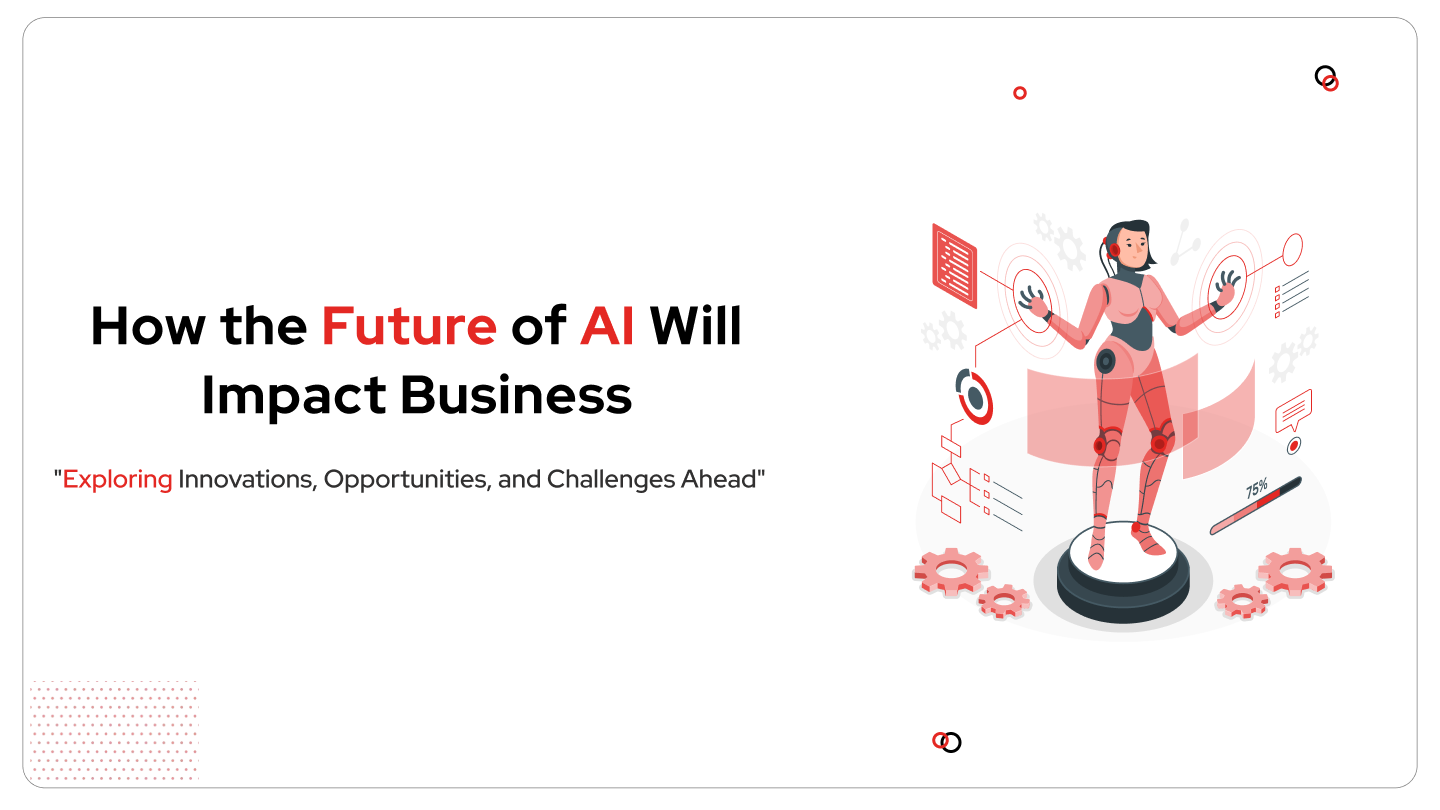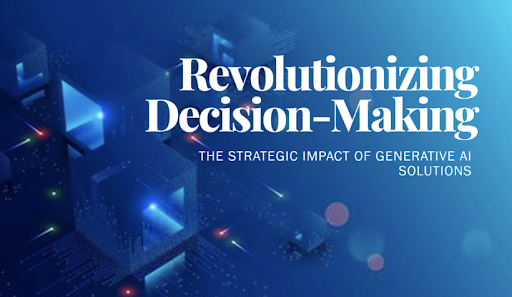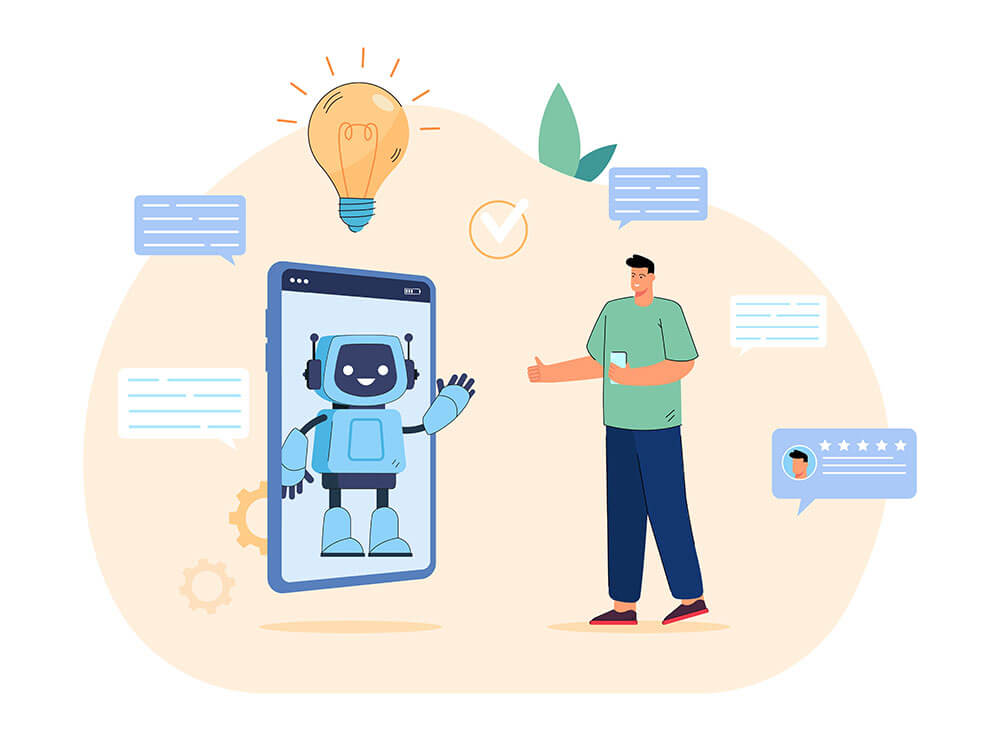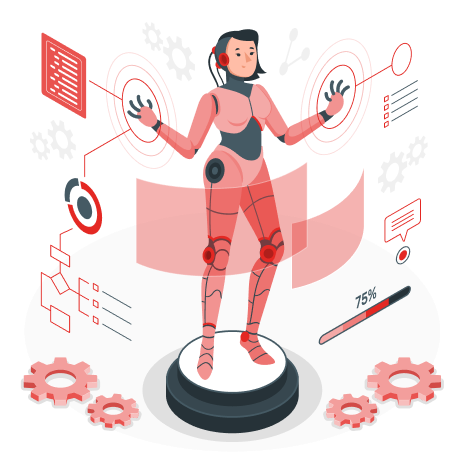
In the dynamic realm of technology, artificial intelligence (AI) emerges as a beacon of innovation, poised to revolutionize how businesses function, strategize, and excel. As we approach the dawn of a new era, it becomes essential to explore the profound implications AI carries for the future of business.
Revolutionizing Decision-Making
In today’s era of information abundance, the ability to make timely and well-informed decisions is paramount for thriving in business. Artificial Intelligence (AI) plays a pivotal role by providing decision-makers with actionable insights derived from analyzing vast and diverse datasets, uncovering patterns that might elude human perception.
AI-driven business intelligence tools offer real-time analytics, facilitating agile responses to evolving market conditions. Furthermore, AI algorithms excel in simulating multiple scenarios, enhancing strategic planning and risk assessment capabilities. Whether it involves predicting market trends or fine-tuning supply chain operations, AI empowers businesses to make confident, data-driven decisions. AI revolutionizes decision-making by harnessing the power of data to offer invaluable guidance, enabling organizations to navigate complexities and seize opportunities with precision and agility.

Fostering Innovation and Creativity
Contrary to common perception, AI transcends mere automation; it catalyzes innovation. By enhancing human capabilities, AI fosters creativity and unlocks possibilities previously deemed unattainable. In sectors like design and marketing, AI tools aid professionals in ideation, design refinement, and anticipation of consumer reactions. For instance, AI-driven platforms can generate music, art, or literature based on predefined parameters, fostering fresh avenues for artistic expression.
Furthermore, AI-powered algorithms can detect emerging trends and market voids, motivating entrepreneurs to create groundbreaking products and services. Through democratizing access to data-driven insights, AI democratizes innovation, equalizing opportunities for both startups and established enterprises.

Addressing Ethical and Societal Implications
While the potential of AI to revolutionize business is undeniable, it also raises ethical and societal concerns that must be addressed proactively. As AI systems become more pervasive, questions regarding data privacy, algorithmic bias, and job displacement come to the forefront.
Businesses must prioritize transparency and accountability in AI deployment, ensuring algorithms operate ethically and uphold fundamental rights. Moreover, efforts to mitigate bias in AI models are paramount to building inclusive systems that serve diverse communities equitably.
Furthermore, the advent of AI necessitates reskilling and upskilling initiatives to prepare the workforce for the jobs of the future. Rather than displacing human workers, AI should augment their capabilities, freeing them from mundane tasks to focus on higher-value activities that require empathy, creativity, and critical thinking.
Unleashing Efficiency and Productivity
AI’s ability to analyze vast amounts of data at unparalleled speeds unlocks a new realm of efficiency for businesses. From automating repetitive tasks to optimizing complex processes, AI streamlines operations, allowing organizations to allocate resources more effectively.
Take, for instance, the retail sector. AI-powered algorithms can forecast demand, optimize inventory management, and personalize customer experiences, leading to reduced costs and increased sales. Similarly, in manufacturing, AI-driven predictive maintenance minimizes downtime by preemptively identifying equipment failures, thereby enhancing productivity.
Enhancing Customer Engagement
The future of business hinges on delivering personalized experiences that resonate with customers. AI emerges as a game-changer in this regard, enabling businesses to understand customer preferences at a granular level and tailor offerings accordingly.
Chatbots, powered by natural language processing (NLP), provide round-the-clock customer support, resolving queries and processing orders in real time. Furthermore, AI-driven recommendation engines analyze user behavior to suggest relevant products or content, fostering customer loyalty and driving sales.

Promoting Collaboration and Coexistence
As we navigate towards a future powered by AI, the synergy between humans and machines emerges as pivotal for success. Instead of perceiving AI as a threat, businesses are encouraged to embrace it as a strategic ally, amplifying human intelligence and enriching organizational capabilities.
Cross-disciplinary collaboration among technologists, business leaders, and subject matter experts becomes indispensable for unlocking the full potential of AI. By cultivating an environment of innovation and exploration, businesses can harness AI to tackle intricate challenges and foster sustainable development.
Furthermore, forging partnerships among industry players, academia, and policymakers plays a vital role in shaping AI governance frameworks that prioritize innovation alongside ethical considerations and accountability. Through nurturing an ecosystem of trust and cooperation, we can guide AI towards a future that benefits society at large.
In Conclusion: Embracing the AI-Driven Future
The trajectory of business is intimately intertwined with the advancement of artificial intelligence. Through leveraging AI’s capacity for transformation, organizations can unlock fresh opportunities, optimize operational processes, and deliver unparalleled value to their clientele. However, reaping the full advantages of AI necessitates a proactive stance in addressing ethical, societal, and regulatory complexities. By prioritizing transparency, equity, and human-centric design, businesses can construct AI frameworks that empower rather than supplant human involvement.
As we embark on this journey towards an AI-driven future, let us wholeheartedly embrace collaboration, innovation, and conscientious stewardship. Together, we can forge a future where AI acts as a catalyst for progress and prosperity, benefitting generations to come.
